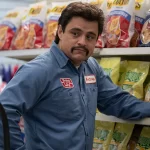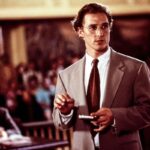21. Chinatown
score by Jerry Goldsmith
As a film, Chinatown seems to become more prescient every passing day, a genre period piece that said more about the future than the past, an examination of the foundations of urban consumption and survival, rooted in violence, depravity, corruption, and theft, which presaged its eventual consequences and its current all-importance. Jerry Goldsmith’s score, similarly, became the archetypal noir sound, despite being written for a neo-noir film and bearing little resemblance to the actual noir soundtracks from the 40s and 50s. Dipping back into jazz experimentation barely a decade old, Goldsmith utilized a patina of shimmering notes to evoke a strange, familiar Orientalism, interrupted by the harshness of discordant piano harmonies, then finished by a lone trumpet, mournful and wary. Goldsmith musically defined the most American genre in distinctly multicultural but American terms, sounding a note so true we still can’t separate its rhythms from the actual time period portrayed. Like noir, and Chinatown, itself, Goldsmith’s score is the archetype of the American urban experience, seductive, multi-textured, corrupted, lonely, and suffused with paranoia.
Essential tracks – Noah Cross, Jake and Evelyn






























All of the cues could be labeled as “essential tracks” because of how each and every cue is seamlessly precise for the apposite scene as it enters and exits. That’s one of the reasons I think it’s the greatest film score ever.
I absolutely agree, though labeling essential tracks is just highlighting my favorite tracks in the soundtrack album. Jake and Evelyn articulates the love theme beautifully with an undercurrent of melancholy, and then you really can’t forget the theme for Noah Cross, especially Goldsmith’s innovative use of contemporary experimental jazz. It’s truly phenomenal work.
This is a rather late post and while this list was a list of preferred scores, Chinatown’s score is definitely greater than Taxi Driver’s. Other than the fact that it clearly influenced the main title to Taxi Driver with its’ blusey theme with avant-garde textures, the score to Chinatown is way more than jazz, since jazz is less than half of the score. Most of the score relies on Goldsmith’s innovative and avant-garde orchestrations that range from evoking an arid desert setting to a distressed, moaning female voice all in an unorthodox musical ensemble which, coupled with the bluesy material, amounts to 23 minutes of total scoring. Goldsmith’s creates as much atmosphere and mood in only 23 minutes of scoring as any score on this or any list of all time great scores.
On second thought, its the greatest film score in cinema.